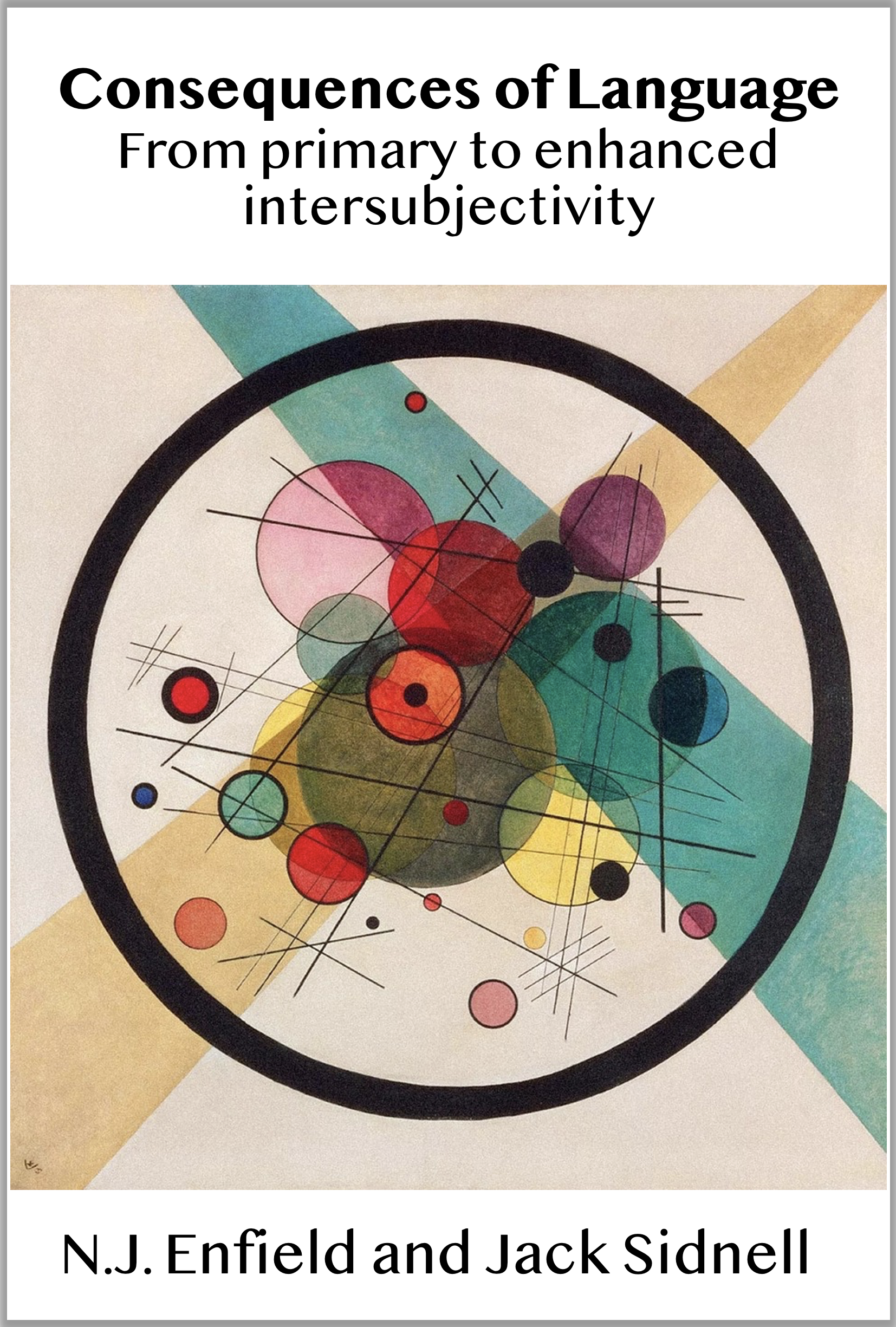Consequences of Language: From Primary to Enhanced Intersubjectivity
Publisher: MIT Press (2022)
N. J. Enfield and Jack Sidnell

Publisher: MIT Press (2022)
N. J. Enfield and Jack Sidnell
What is it about humans that makes language possible, and what is it about language that makes us human?
If you are reading this, you have done something that only our species has evolved to do. You have acquired a natural language. This book asks, How has this changed us?
Where scholars have long wondered what it is about humans that makes language possible, N. J. Enfield and Jack Sidnell ask instead, What is it about humans that is made possible by language? In Consequences of Language their objective is to understand what modern language really is and to identify its logical and conceptual consequences for social life. Central to this undertaking is the concept of intersubjectivity, the open sharing of subjective experience. There is, Enfield and Sidnell contend, a uniquely human form of intersubjectivity, and it is essentially intertwined with language in two ways: a primary form of intersubjectivity was necessary for language to have begun evolving in our species in the first place and then language, through its defining reflexive properties, transformed the nature of our intersubjectivity. In the authors’ analysis, social accountability—the bedrock of society—is grounded in this linguistically transformed, enhanced kind of intersubjectivity.
The account of the language-mind-society connection put forward in Consequences of Language is one of unprecedented reach, suggesting new connections across disciplines centrally concerned with language—from anthropology and philosophy to sociology and cognitive science—and among those who would understand the foundational role of language in making us human.